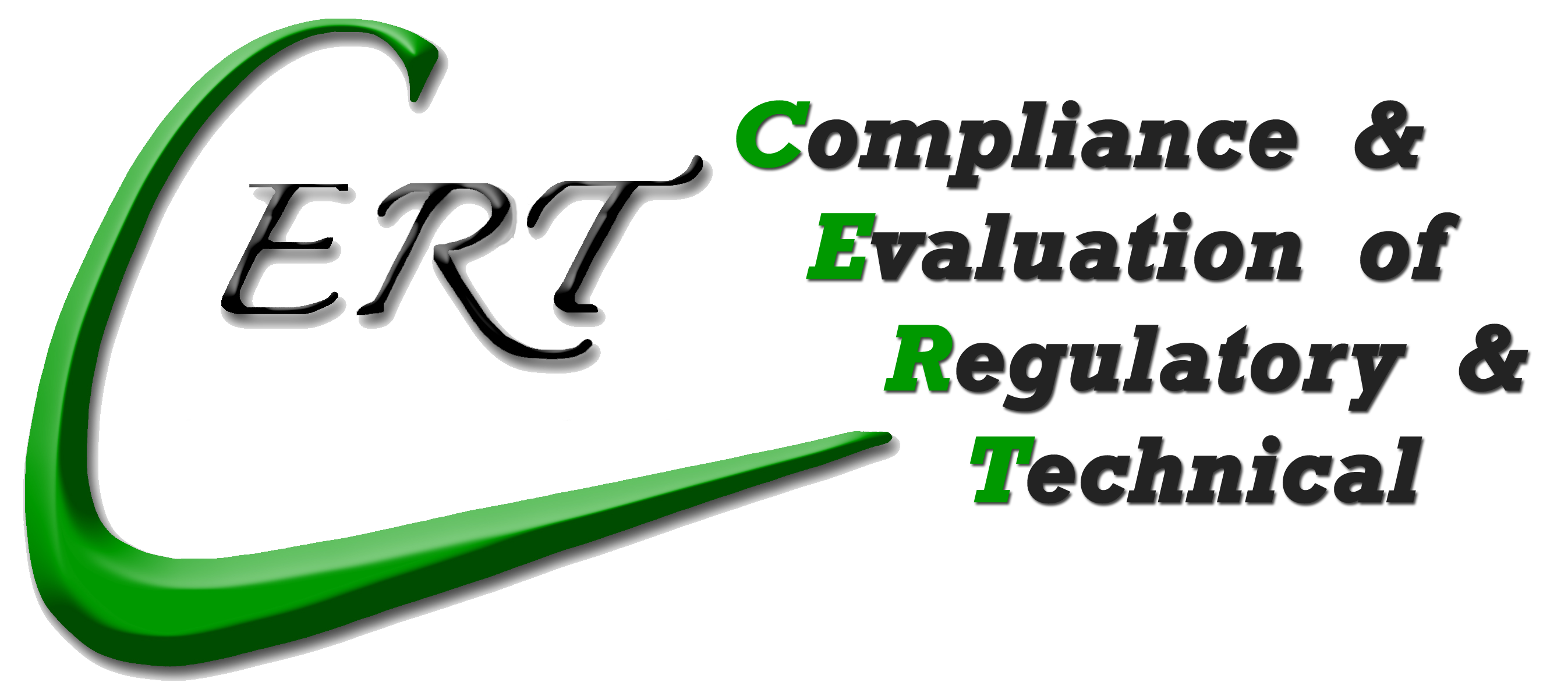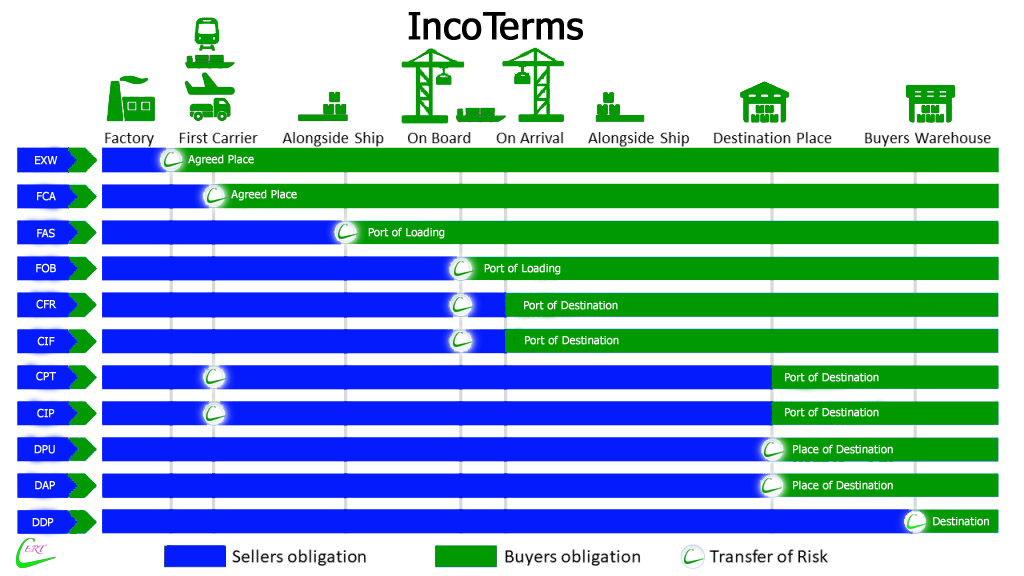Terminal Handling Charges
These charges are made by the terminal operator in respect of container movements:
- before departure, from the seller’s vehicle to the stack and thence to the departing conveyance
- at the destination, from the arriving conveyance to the stack and thence to the buyer’s vehicle
They are a potential cause of confusion, because carriers vary in their practice – some include “destination” THC’s in their freight rates, and others do not.
The Incoterms rules are clear that when the THC’s are the responsibility of the seller, the buyer should not be charged again for the same service.
However there is a potential “grey area” here – especially in respect of
terminal handling charges at the port of destination when the “C” or “D” Incoterms rules are used.
Additional Information:
E terms (EXW): The seller makes available its goods at their premises in order for the buyer to collect. This is the minimum obligation for the seller.
F terms (FCA, FOB, FAS): The seller delivers the goods to a carrier appointed by the buyer. The seller will arrange and pay for delivery of goods to the carrier, but the buyer pays for everything after that.
C terms (CFR, CIF, CPT, CIP): The seller has to contract for carriage, but does not assume the risk of loss or damage after the shipment.
D terms (DAT, DAP, DDP): The seller bears all risk involved in bringing the goods to the buyer.
For more details regarding the updated 2020 terms, please speak with your nominated shipping company or refer to the International Chamber of Commerce.
There are two key changes in Incoterms ® 2020 compared to the last edition:
- DAT (Delivered at Terminal) is renamed Delivered at Place Unloaded (DPU)
- FCA (Free Carrier) now allows for Bills of Lading to be issued after loading
Other changes include:
- CIF (Cost, Insurance and Freight) and CIP (Carriage and Insurance Paid To) set out new standard insurance arrangements, but the level of insurance continues to be negotiable between buyer and seller.
- Where listed, cost allocation between buyer and seller is stated more precisely – one article lists all costs the seller and the buyer are responsible for.
- FCA (Free Carrier), DAP (Delivered at Place), DPU (Delivered at Place Unloaded) and DDP (Delivered Duty Paid) now take account of buyer and seller arranging their own transport rather than using a third party.
- Security-related obligations are now more prominent.
- “Explanatory Notes for Users” for each Incoterm® have replaced the 2010 edition’s Guidance Notes, and are designed to be easier for users.
- CIP now requires as default insurance coverage ICC A or equivalent. It was ICC C under Incoterms® Required insurance coverage under CIF remains.


